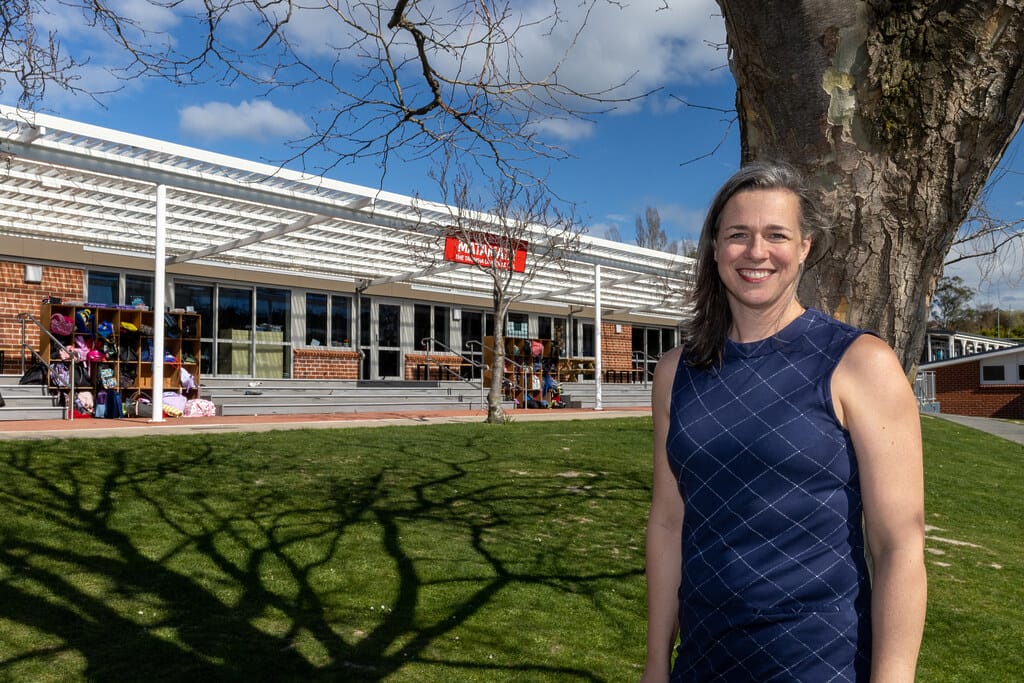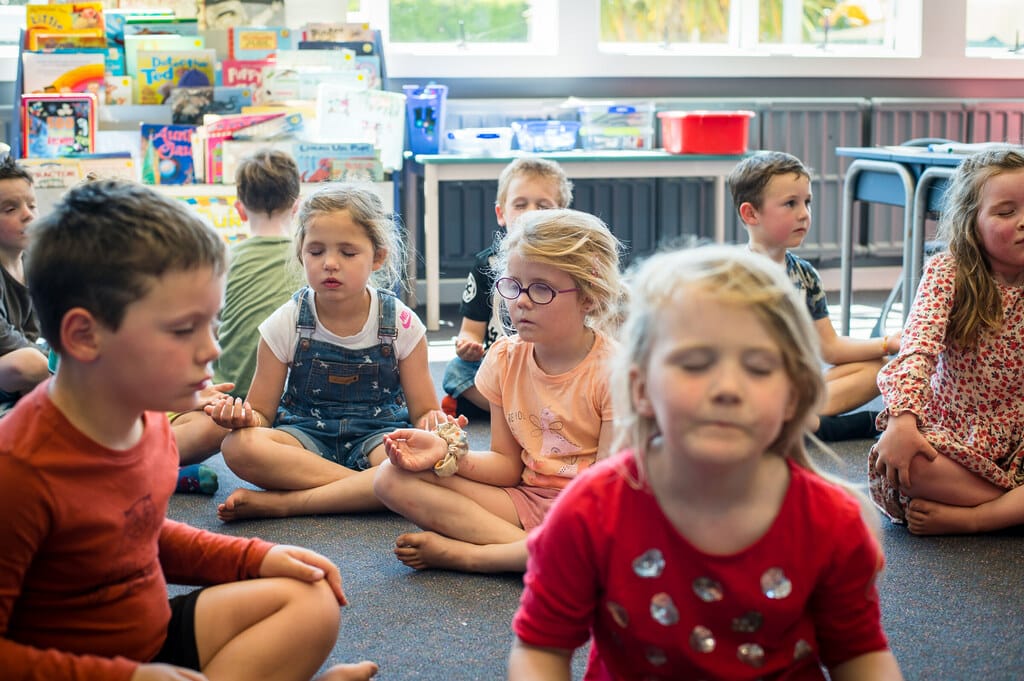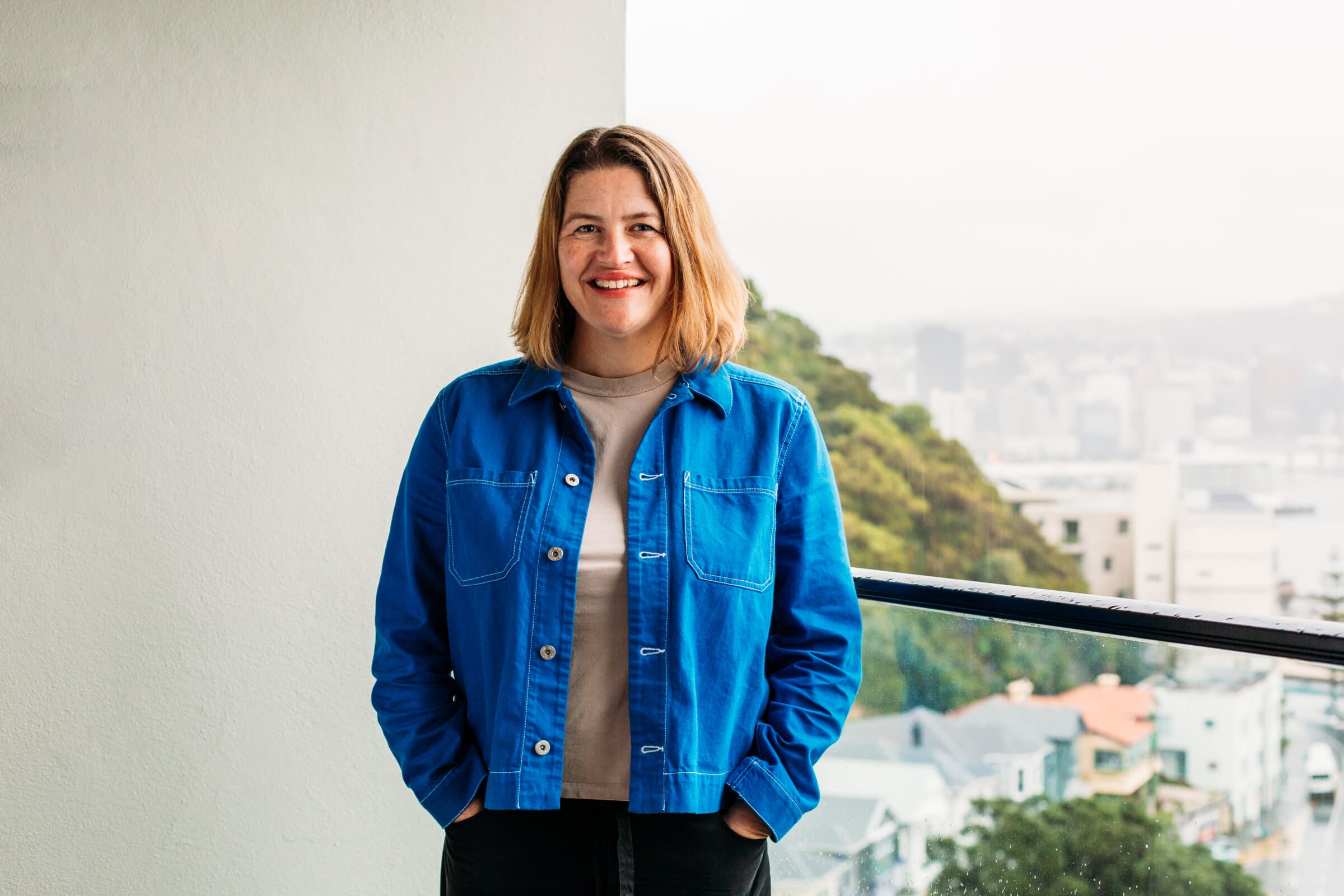Mindfulness for mums

Janel Atlas helps women and children to be more mindful in their lives with simple but meaningful mind health practices.
The word mindfulness pops up everywhere these days, but sometimes it can seem like just another measure we’re falling short on. For mums especially, it can feel like just one more thing we’re supposed to accomplish in our already full days.
What’s the fuss about mindfulness and what can it provide us, really? In her role as a mindfulness facilitator, author, PhD, and Christchurch-based solo mum Janel Atlas trains teachers around Aotearoa in a mindfulness-based intervention called Pause Breathe Smile (PBS). The programme supports kaiako / teachers to help their tamariki with simple activities to bring more mindfulness to their days.
Janel explains that to be mindful means to be present, pay attention, and show up for here and now — which she acknowledges can be easier said than done. At a time of endless scrolling, buzzing notifications, day-to-day demands, mindfulness is an approach to being.
Doing this work is a natural fit for Janel, who moved to Aotearoa in 2018 as she was finishing a PhD in rhetoric and composition. Janel trains schools in the PBS programme, which is free for all New Zealand schools thanks to the generous support of Southern Cross.
Her personal mindfulness practice has developed over her adult life, but it wasn’t until the first New Zealand Covid lockdown in 2020 that she really got serious about daily mindfulness each morning. Nowadays, she starts her mornings with a couple of simple mindfulness practices: seated silent breathing, journaling, a little bit of mindful movement, and a 10-minute walk without a phone. “Even though I don’t have the time, I carve out the time, because it makes all the difference in my life,” says Atlas.
“There are days that I might abbreviate one or two of these elements. I’ve learned to trust that even listening to a short guided audio practice on the Pause Breathe Smile app sets me up for the day in a better frame of mind.”
“As mums and women, we get mixed messages about self-care and looking after ourselves: we’re told that it’s vital to do so, but also that it’s indulgent or selfish. It’s not,” explains Atlas.
Every day also provides opportunities to apply the mindfulness principles she teaches to parenting teenagers, one at university (19) and two in high school (17 and 13). “Young people of this generation really do have a hard time of it, with social media, societal pressures, worry about their future and humanity’s future,” says Atlas. “But as much as we may want to, we cannot make the world safe, palatable, and comfortable for our kids. We cannot solve the problems they face and erase the things they worry about.”

That doesn’t mean that we are helpless. A huge part of our role as parents is to manage our own emotions and regulate our attention, Atlas says: “If we are routinely reacting to situations mindlessly, without attending to our own feelings and needs, then we are likely to be reactive to our kids’ actions and emotions, which just makes the situation worse.”
Mindfulness is not about getting things ‘right’ or adding yet another task to our to-lists. Learning to become more mindful encourages us Atlas says, to ask ourselves: “How can I wake up to here and now? How can I show up more fully for what is happening each moment of my life?” Seeking answers to those questions can pay dividends in our relationships with our children.
When our kids are upset or struggling with their own mental health, it can be tempting to throw our own habits for wellbeing out the window, but what helps us help our young people is making sure that we continue doing things that help fill our cup and ensuring that we manage our own emotions. In practice, this means managing your fight or flight response, which can look like taking a moment to breathe, go for a walk, call a friend, or listen to a song that helps relax you, before you re-engage with your children and a situation that could be emotionally laden or stressful. Modelling hauora in a way that is authentic for us as parents can be more beneficial for our children than being perfect or having all the right answers when our kids come home from school upset or stressed.
What about taking that relating time outside? Spending time in nature has been shown in many research studies to support our brains’ ability to regulate and pay attention. Parents of teenagers can encourage tuning into the natural world by inviting their kids along for a walk in the bush, at a park, or by the sea. Everyone leaves their devices at home and takes a mindful walk, tuning into their senses of sight, hearing, taste, touch, and smell.
Another lesson from Janel’s work with PBS is the power of gratitude.
“We already know that negativity, gossip, and complaining are contagious —when someone near us starts up on that kind of track, it’s so easy to join in,” explains Janel. “But the same is true of gratitude. When we express something we are thankful for, it invites other people to reflect on what is going well and working out for them. Even on a rough day, when lots is stressful or feels like it’s falling apart, there are always things that are going well, too.”
In practice, this might be as simple as asking for your kids’ high and low from the day. Talking about this in the car or next to each other on a walk may make it easier for older kids to be open and vulnerable.
Sharing a simple breathing practice with your kids can help them notice the power of their breath. Your teenager might like to try a couple of intentional inhales with you or you can encourage them to download the Pause Breathe Smile App for guided breathing practices.
“Our breath is always with us, and taking a couple mindful breaths is something we can do anyplace, anywhere, anytime,” says Janel. “A deep breath is like a love note to your nervous system.”
Visit Pause Breath Smile’s website here to learn more.
Related Stories
Meet the foodie who spends her weeks teaching producers how to make foods that go global.



